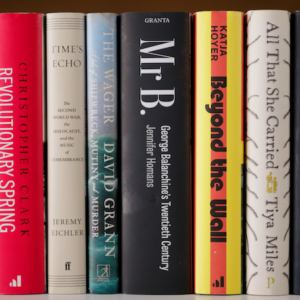
It wasn’t planned: it just happened. It happened to us. I was fourteen years old and found my mother outside the house. She was smiling, beautiful, her hair pulled back in a ponytail, sitting on the back seat of a Harley-Davidson, hugging a man around the waist, waving goodbye to me. She was going to Guatemala, and she went. She left us. The story should end right there. It would be a perfect novel. It would check all the boxes. There’s an initial enigma, there are characters, there’s an atmosphere, there’s drama. But there’s no conclusion, no explanations. There’s no “x is a consequence of y,” not even the slightest warning that your mother will leave. Sometimes I think everything that happened afterward is the real novel.
The man was her lover. I remember how I kept thinking about the word after I watched them go: lover. I knew it in theory, but not in practice. I thought: I’m fourteen, I’m neither pretty nor ugly, I’m basically flat-chested, I have acne. I liked the idea of fleeing on a Harley-Davidson, clinging to a man. I also remember thinking: at this rate, I’m not going anywhere.
Until that moment, I’d been a teenager who was evolving into something better, or so I thought. But travel, any travel, means becoming a different person, and sometimes it also transforms the people you leave behind. My mother’s departure forced me to perform in an unfamiliar theater, which is why, as soon as she was gone, I started living a life that wasn’t mine: she turned me into Sherlock Holmes. Out of the blue, my surroundings became potential clues. What, out of everything that had already happened in my childhood, had hinted that she would leave? And most of all: what kinds of future discoveries would help me find her?
This last part gave me some hope.
Without a second thought, I went into the house and up to her bedroom. It was a mess. Clothes strewn everywhere, jewelry box overturned, her keys (why her keys?), the medicine cabinet ajar. Where to begin. I knew I had to leap into action, but something kept me frozen in place. A strange command said: do it, don’t even take off your shoes, so I climbed into her bed and let myself be enveloped in her exquisite and omnipresent fragrance, Courrèges de Printemps. Covered up to my chin, gazing out from that vantage point, I thought of her characteristic half-smile, as if she were saying: yes, I know it’s a disaster, but what does it matter? The way she held her cigarettes, her single-minded penchant for fantasy, how she stretched any argument to absurd extremes. I didn’t yet know the importance of sustaining a fiction: of drawing it past the bounds of real life when life itself has grown so difficult that there’s nowhere else to hide from it. But I knew that imitating someone you admire is half the work of finding them, so I made a decision: I would become my mother. I’d wear her makeup, read the books she’d piled up everywhere, so that you had to jump over them if you wanted to get from one part of the house to the other. My go-to books, she called them, although I hadn’t seen her open one in years: the Dialogues of Plato, Hesiod’s Works and Days, The Words by Sartre, and Nietzsche’s Beyond Good and Evil. “What doesn’t kill me makes me stronger,” she’d written in pencil on the first page. She’d read them out of order, opening them at random, like a horoscope or the I Ching: what does today have in store for me?, interspersing the pages with letters from her lover, as well as some papers she’d pinned on a bulletin board beside her bed. An excellent idea, because as long as I could be her, she’d be there with me, and because no one could blame her for having left us, me and my siblings. I knew one thing for sure: it wasn’t my mother’s fault that she’d left, it wasn’t even a bad thing. Quite the opposite: it was exciting. And also: her marvelous life would now be mine. How could I be wrong about that? At fourteen, I was exceptionally bright and had a ruthless sense of logic. I thought: why wouldn’t everything be better now, since her life is thrilling and mine is dull. Why wouldn’t I be happy. And I was right, as I saw it. No sane person isn’t happy if they’re convinced they are.
I was close to finalizing my plan when the phone rang. I was tempted not to pick up, loyal to my mother’s habit of never picking up, obeying the conviction that people only call to interrupt you most of the time.
“How is everyone? Doing all right?” Aunt Paula was calling to ask.
Or almost ask, because she invariably stated what she wanted to hear, just in the form of a question. I had no choice but to mimic the conversations I’d overheard other people having. To make myself, from that day forward, into the copycat I am now.
“Everyone’s fine, thanks, Aunt Paula. How about all of you?”
It was a relief to feel the script pushing me forward, even if the lines were hollow.
Silence.
__________________________________
Excerpted from Free Radicalsby Rosa Beltrán. Used with permission of the publisher, katakana editores & Hablemos escritoras. Copyright © 2023 by Rosa Beltrán. Translation copyright 2023 © by Robin Myers © Cover art by Karla Cuéllar. All rights reserved


